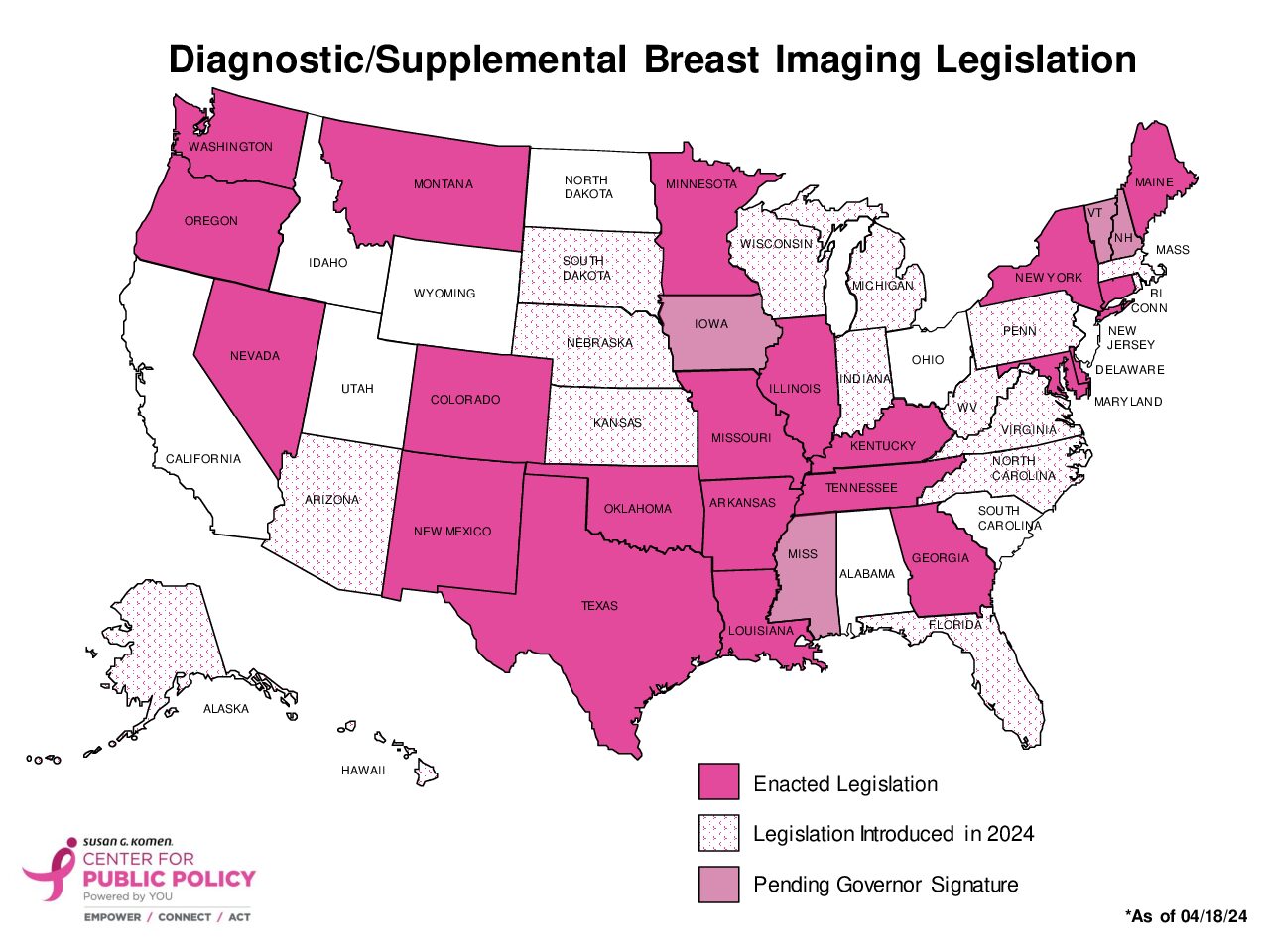2024 State Legislative Sessions Mid-Year Review
34 – Number of states with Komen-led Legislation
41 – Number of issues introduced in 2024 state sessions
31 – Number of states where Komen engaged in coalition efforts
24 – Number of states with enacted Diagnostic & Supplemental Imaging legislation
11 – Number of states with enacted Komen-led legislation

The Center for Public Policy (CPP) has worked tirelessly over the last several years to deepen engagement and leadership at the state level. This year, our state team built upon these efforts, introducing legislation in more states than any year prior.
We focused on five key issues during the 2024 legisaltive sessions that aligned with Komen’s 2023-2024 Public Policy & Advocacy Priorities – access to diagnostic and supplemental breast imaging, coverage of genetic testing and evidence-based screening, increased eligibility and funding for the state’s breast and cervical cancer early detection program and ensuring access to treatments for metastatic breast cancer patients.
In 2024, 23 states introduced legislation that would eliminate patient cost-sharing for diagnostic and supplemental breast imaging, a vital step to ensuring the early detection of breast cancer. The Affordable Care Act provides no cost coverage for screening mammography. Unfortunately, individuals at a higher risk of breast cancer or those requiring follow-up imaging due to an abnormal mammogram result are faced with hundreds to thousands of dollars in patient cost sharing. This legislation will ensure patients are not forced to forego or delay cancer screenings, when the cancer is deadlier and much more costly to treat.
Eight states introduced legislation to prohibit step therapy protocols for metastatic cancer patients. This would ensure metastatic cancer patients are not forced to first try a health plan preferred drug and have that drug fail them prior to receiving coverage for their originally prescribed drug.
Three states introduced legislation to eliminate cost sharing for genetic testing and the evidence-based screenings required as a result of the testing. Eliminating the cost barrier to genetic testing and evidence-based screenings ensures individuals will have access to critical information regarding their lifetime cancer risk and access to medically recommended early detection and cancer surveillance care.
Five states introduced legislation to increase eligibility or funding for the state’s breast and cervical cancer early detection (BCCP) program. The state’s BCCP programs provide low-income, uninsured and underinsured women access to breast and cervical cancer screening and diagnostic services. Legislation in Colorado, Georgia, Louisiana and New York increased funding for these programs and legislation in California increased the eligibility criteria for their state’s program.
Two states introduced legislation supporting the breast and cervical cancer treatment program. Missouri increased the eligibility criteria for the state breast and cervical cancer treatment program, ensuring more individuals have access to life-saving treatment services. In Utah, the team led the efforts to reverse the proposed budget cuts to the breast and cervical cancer treatment program, which would have cut the program enrollment by 50%.
Below is a map of diagnostic and supplemental imaging by state to date. You can learn more about the status of state bills. We hope you will support us in these efforts by signing up to become an Advocacy Insider so you can take action in your state.




